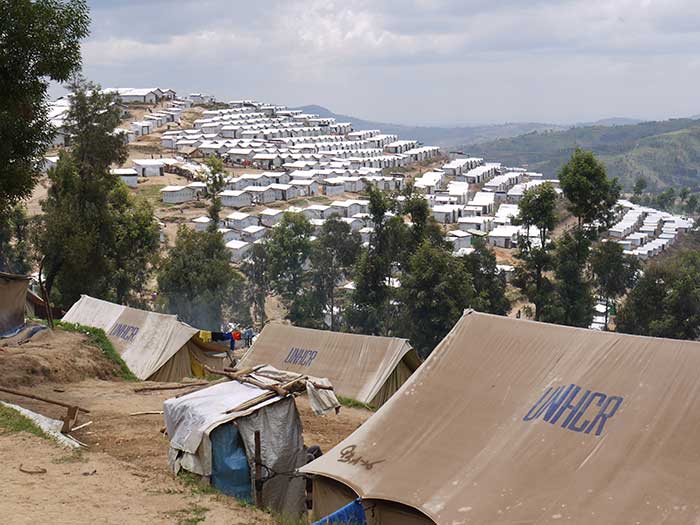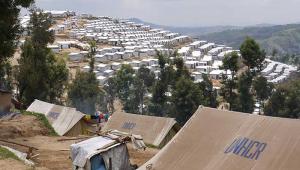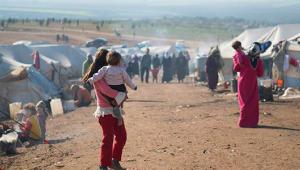web_oxfam_8097455453_5575c77457_o.jpg

A refugee camp. Credit: Oxfam
According to the study, which collated data from hundreds of surveys in and around two refugee settlements, every dollar in cash aid provided to refugees increased real incomes in the area by between $1 and $1.50.
Over the course of a year, this increased annual income in the local economy of the area surrounding one settlement by $1,106, and by $1,072 in the area surrounding the other settlement.
This “income multiplier” effect is still significant when refugees received in-kind aid, such as food, increasing local incomes by around $850 annually.
WFP country director Cheryl Harrison said this was the first time the economic impact of humanitarian food aid has ever been calculated in Uganda.
She said the results “show clearly that refugees benefit those countries that welcome them and give them what they need to build their lives”.
As well as food, Harrison highlighted the Uganda’s approach of providing refugees with agricultural land, with each household contributing up to $220 to the country’s economy per year as a result.
Jaakko Valli, co-researcher and WFP’s refugee programme manager in Uganda, added that refugees invest considerably more labour and therefore bring higher yields and contribute to local food supplies by selling their crops.
The research, published last week, is the latest to examine the economic benefits refugees can bring to their host communities. As more people have been forced to flee across borders due to conflict, insecurity or environmental changes, the number of refugees has risen to 65 million.
Almost 90% of these are hosted in poor countries like Uganda, which houses 800,000 people mostly from South Sudan, Burundi and the Democratic Republic of Congo under what the WFP’s report dubbed “one of the most favourable and progressive refugee assistance programmes in the world”.
Cash-based aid delivery has also received plaudits in recent years for its economic value and ability to increase autonomy and choice.
However, many were left disappointed following the first ever World Humanitarian Summit in May this year, when commitments by the world’s major donors and aid organisations only nodded to scaling up cash-based aid.













